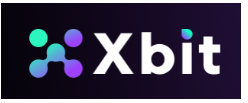Blockchain
Closing the Regulatory Gap in Crypto with TradFi Experience

The cryptocurrency industry has experienced rapid growth and increased public recognition, but it still faces substantial regulatory challenges. The industry’s fast-paced development has outpaced the capacity of many regulatory bodies to establish consistent standards, creating a significant regulatory gap. This disconnect has led to a fragmented regulatory landscape, causing uncertainty and risks for crypto platforms. The lack of a uniform framework complicates compliance and stifles growth, as platforms must navigate different rules in various jurisdictions.
One of the primary issues is that many crypto platforms lack regulatory experience, often being founded by tech entrepreneurs without a background in financial regulations. Conversely, regulators, accustomed to traditional financial institutions, may struggle to understand digital assets and blockchain technology, further widening the regulatory gap. This situation makes it challenging for the crypto industry to achieve necessary oversight and stability.
To address these challenges, traditional financial institutions, often referred to as TradFi, have begun entering the cryptocurrency space. These institutions bring extensive experience in navigating regulatory landscapes, offering a potential bridge between crypto platforms and regulators. An illustrative example is the MultiBank Group, a financial derivatives organization established in 2005, which has leveraged its regulatory knowledge to enter the crypto market through its platform, MultiBank.io. This platform offers secure trading of digital assets like Bitcoin and Ethereum, aiming to apply the same regulatory rigor found in traditional finance to the crypto sector.
The involvement of TradFi platforms like MultiBank brings several benefits to the crypto industry:
- Regulatory Expertise: TradFi institutions are well-versed in regulatory compliance, and their entry into the crypto space can help set standards and practices that ensure safer and more reliable operations. MultiBank’s extensive regulatory licenses and global presence highlight its capacity to handle complex financial regulations, which it can translate into actionable strategies for the crypto sector.
- Improved Communication with Regulators: TradFi institutions can act as intermediaries between crypto platforms and regulatory bodies. They can facilitate better communication, helping to craft regulations that are both practical and specific to the unique aspects of digital assets. This role is crucial for aligning the industry’s growth with regulatory requirements, thus fostering a more stable market environment.
- Enhanced Security and Compliance: The rigorous security and compliance standards that TradFi institutions adhere to can enhance the credibility and stability of the crypto platforms they enter. MultiBank, for example, uses its established infrastructure and regulatory knowledge to improve the safety and reliability of its crypto offerings, setting a precedent for others in the industry.
- Legitimacy and Stability: The endorsement of digital assets by major financial institutions lends credibility and legitimacy to the crypto market. This, in turn, attracts more investors and encourages broader acceptance. The presence of regulated entities in the crypto space also contributes to a more stable and healthier market.
In conclusion, the regulatory gap in the cryptocurrency industry presents significant challenges, but the entry of TradFi institutions like MultiBank Group offers a promising path forward. These institutions can leverage their regulatory expertise to help shape sensible regulations and improve engagement with regulators. As more TradFi companies enter the cryptocurrency market, there is potential for a future where innovation in digital assets is supported by robust compliance and regulatory frameworks, fostering a safer and more stable financial ecosystem.
Source: newsbtc.com
The post Closing the Regulatory Gap in Crypto with TradFi Experience appeared first on HIPTHER Alerts.
Blockchain
Blocks & Headlines: Today in Blockchain – May 29, 2025 (Vaulta, Fosun, Signing Day Sports, Credit Unions, Gaming Innovations)

Welcome to Blocks & Headlines, your definitive daily briefing on the latest blockchain breakthroughs, cryptocurrency developments, and Web3 innovations. In today’s edition—May 29, 2025—we explore five pivotal stories shaping the decentralized economy:
- FT Analysis: Crypto Regulation and Institutional Adoption
- Signing Day Sports Seals Deal with Blockchain Digital Infrastructure
- Vaulta & Fosun Partner to Power Hong Kong’s Blockchain Backbone
- Transforming Online Gaming: Blockchain’s Next Frontier
- Credit Unions Embrace Blockchain for Trustworthy Financial Services
This op-ed–style roundup delivers concise yet insightful coverage, critical analysis, and expert opinion on each development’s relevance within the broader blockchain and cryptocurrency ecosystem.
1. FT Analysis: Crypto Regulation and Institutional Adoption
Overview. The Financial Times reports on evolving global regulatory landscapes and their impact on institutional cryptocurrency adoption. FT highlights how major funds and asset managers navigate compliance frameworks in the US, EU, and Asia to integrate digital assets into traditional portfolios.
Source: Financial Times
Detailed Analysis. As regulators across jurisdictions craft tailored guidelines—from MiCA in Europe to the SEC’s evolving crypto classifications in the US—institutions face a balancing act between innovation and compliance:
- MiCA’s Market Integrity Measures: New EU rules mandate clear disclosures for stablecoin issuers and exchange operators, raising the bar for consumer protection.
- SEC’s Custody Interpretations: Emerging guidance on digital asset custody models, including qualified custodians versus self-custody frameworks.
- Asia’s Sandbox Approaches: Hong Kong and Singapore expand sandbox programs, offering controlled environments for DeFi and tokenization trials.
Opinion. Regulatory clarity is the linchpin for institutional inflows. While stringent frameworks may seem burdensome, they ultimately foster market confidence and prevent systemic risks. Asset managers should proactively engage with policymakers, leveraging sandbox insights to shape pragmatic, innovation-friendly regulations.
2. Signing Day Sports Seals Deal with Blockchain Digital Infrastructure
Overview. According to TradingView’s Reuters feed, Signing Day Sports has executed a definitive agreement to acquire Blockchain Digital Infrastructure, a profitable data-hosting specialist serving DeFi and NFT platforms.
Source: Reuters via TradingView
Detailed Analysis. The acquisition underscores the rising value of specialized blockchain infrastructure:
- Scalable Data Nodes: Blockchain Digital Infrastructure operates 150+ high-throughput nodes, ensuring low-latency data delivery for real-time sports NFT drops.
- Profitability Metrics: The company reported $32 million in EBITDA last fiscal year, highlighting sustainable revenue in a niche market.
- Strategic Synergies: Signing Day Sports plans to integrate hosted nodes into its upcoming sports collectibles marketplace, guaranteeing seamless token minting during high-traffic events.
Opinion. In Web3, infrastructure is the invisible backbone. For NFT marketplaces and DeFi protocols, node reliability and data throughput directly impact user experience—and ultimately, revenue. This move positions Signing Day Sports to compete at scale, setting a precedent for vertical integration in blockchain hosting.
3. Vaulta & Fosun Partner to Power Hong Kong’s Blockchain Backbone
Overview. Coindesk reports that Vaulta, a leading digital asset platform, is teaming up with Fosun International to develop blockchain infrastructure for Hong Kong’s emerging crypto hub.
Source: CoinDesk
Detailed Analysis. The collaboration aims to build secure, high-performance rails for trading, custody, and tokenization:
- Layer-1 Interoperability: Joint development of a cross-chain protocol connecting Ethereum, Binance Smart Chain, and local DLT frameworks.
- Institutional Custody Solutions: Licensed trust entities under Fosun’s umbrella will offer insured cold-storage services for professional investors.
- Regulatory Cooperation: Partnership includes a liaison with the Hong Kong SFC to ensure compliance with the new Virtual Assets Service Provider (VASP) regime.
Opinion. Asia remains a hotbed for blockchain innovation, but regulatory fragmentation poses hurdles. Vaulta’s alliance with Fosun exemplifies public-private synergy—combining local market expertise, financial strength, and technical know-how to anchor the city’s digital asset ambitions.
4. Transforming Online Gaming: Blockchain’s Next Frontier
Overview. TronWeekly examines how blockchain technologies—especially NFTs and decentralized marketplaces—are redefining online gaming economies.
Source: TronWeekly
Detailed Analysis. Key trends driving gaming’s blockchain revolution:
- Play-to-Earn Economies: Games like Axie Infinity and emergent titles use tokenized rewards and NFT-based assets to create real-world value for players.
- Decentralized Marketplaces: Platforms such as Enjin and Immutable X offer gas-free trading environments for in-game items, enhancing liquidity.
- Cross-Game Asset Portability: Standards like ERC-1155 enable items to move seamlessly between compatible titles, fostering interoperability.
Opinion. Gaming is blockchain’s killer app. Beyond speculative hype, tokenization can democratize game economies, allowing genuine ownership and secondary markets. Developers must, however, tackle scalability and user onboarding frictions—layer-2 solutions and intuitive wallets are essential for mass adoption.
5. Credit Unions Embrace Blockchain for Trustworthy Financial Services
Overview. AP’s business coverage highlights several US credit unions piloting blockchain-based platforms to enhance transaction transparency, reduce settlement times, and cut cross-border remittance fees.
Source: AP News
Detailed Analysis. Examples of credit union blockchain pilots:
- Consortium-Led DLT: A consortium of midwestern credit unions uses a permissioned Hyperledger Fabric network to settle inter-credit-union payments in near real-time.
- Remittance Solutions: Deployment of Stellar-based rails reduces remittance costs by up to 60%, benefiting diaspora communities.
- Member Identity Management: Verifiable credential systems streamline KYC processes, reducing onboarding time from days to hours.
Opinion. As community-focused institutions, credit unions can leverage blockchain to reassert their value proposition—offering cost-effective, transparent services that rival large banks and fintechs. Success will hinge on member education and seamless integration with legacy core banking systems.
Central Themes
Today’s dispatch reveals five core themes:
- Regulatory Engagement: From FT’s analysis to Hong Kong’s VASP regime, clear rules underpin institutional and retail growth.
- Infrastructure Control: Signing Day Sports’ acquisition and Vaulta’s Fosun partnership demonstrate the premium on reliable blockchain rails.
- Economic Innovation: Play-to-earn gaming and credit union pilots show tokenization’s real-world impact.
- Interoperability Focus: Cross-chain protocols and ERC-1155 standards drive seamless Web3 experiences.
- Market Confidence: Institutional adoption and compliance frameworks foster long-term trust.
Conclusion
In today’s Blocks & Headlines, we see blockchain’s evolution from experimental playground to enterprise-grade infrastructure: regulators clarify, institutions invest, communities adopt, and developers innovate. Whether you’re tracking regulatory shifts, infrastructure deals, gaming revolutions, or financial cooperatives, the decentralized ledger continues to reshape industries.
Join us tomorrow for Blocks & Headlines, where we continue to unpack blockchain’s latest breakthroughs—one block at a time.
The post Blocks & Headlines: Today in Blockchain – May 29, 2025 (Vaulta, Fosun, Signing Day Sports, Credit Unions, Gaming Innovations) appeared first on News, Events, Advertising Options.
Blockchain
XDC Network Partners with Bitso Business to Power Cross-Border Payments from the U.S. to Mexico
Blockchain
XBIT DEX Exchange Reshapes the Crypto Trading Ecosystem with Ethereum’s Pectra Upgrade
-

 Blockchain Press Releases14 hours ago
Blockchain Press Releases14 hours agoRain Expands Support to Solana, Tron, and Stellar, Enabling More Partners to Launch Stablecoin-powered Card Programs
-

 Blockchain Press Releases7 days ago
Blockchain Press Releases7 days agoWSPN Launches New Website, Unveiling Enhanced Vision for Next-Generation Stablecoin Infrastructure
-

 Blockchain Press Releases7 days ago
Blockchain Press Releases7 days agoCompass Mining Partners with Synota’s “Impact Mining” Initiative to Transform Bitcoin Hashrate into Community Impact
-

 Blockchain Press Releases7 days ago
Blockchain Press Releases7 days agoBybit Card Rolls Out New Lucky Draw for Guaranteed Wins Including a Tesla
-

 Blockchain6 days ago
Blockchain6 days agoBioSig Technologies, Inc. Signs Definitive Share Exchange Agreement with Streamex Exchange Corp. to Launch First-Mover Real-World Asset (RWA) Tokenization Company Bringing Commodity Markets On-Chain.
-

 Blockchain Press Releases3 days ago
Blockchain Press Releases3 days agoCoinW Teams Up with Superteam Europe to Conclude Solana Hackathon and Accelerate Web3 Innovation in Europe
-

 Blockchain Press Releases3 days ago
Blockchain Press Releases3 days agoFlipster Reveals Middle East Expansion Plans and Appoints Regional Leadership to Bolster Crypto Trading
-

 Blockchain3 days ago
Blockchain3 days agoBlocks & Headlines: Today in Blockchain – May 26, 2025 (Lightchain AI, Cetus Hack, Bilal Bin Saqib, The Blockchain Group)
































